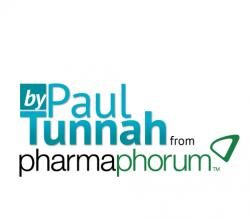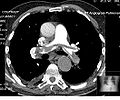 What is Pharmacy Compounding?
What is Pharmacy Compounding?
As healthcare focuses more on patient-centered care and personalization, the popularity of compounding medications is likely to rise accordingly.
 What is Pharmacy Compounding?
What is Pharmacy Compounding?
As healthcare focuses more on patient-centered care and personalization, the popularity of compounding medications is likely to rise accordingly. The art of compounding ingredients in specific dosages for a specific patient might sound a little bit alchemical; the origins of modern pharmaceuticals. In a way, compounding does harken back to the days before mass-production of medication, which began in the late 1960’s and has been the industry standard ever since. Prior to the era of mass production, the main role of a pharmacist was to compound medications. As the industry moved away from the art of compounding, fewer pharmacists were trained in the process.
In the dawning of yet another new era in pharmaceuticals, the resurgence of the practice isn’t surprising. Of course, the pharmacists of today have at their fingertips technology that didn’t exist in the 1960’s and strict regulatory practices inhibit them from compounding without a very specific education in the process. That being said, pharmacies that are interested in having their staff compound medications on-site will need to undergo a thorough review and gain their Pharmacy Compounding Accreditation; a distinction handed out by the Pharmacy Compounding Accreditation Board (PCAB).
Why PBAC?
- Ensures your compounding practices are the best they can possibly be
- Gives you a leg up against the competition
- Lets your patients know you’re meeting – and exceeding – national standards
- Inspires confidence in your pharmacists and patients, strengthens their relationship and promotes communication and personalized goals.
What’s involved in the accreditation process?
- Your pharmacy will be assessed by PCAB to confirm you are not on probation for issues related to:
- 1. compounding quality,
- 2. public safety
- 3. or controlled substances.
- Vetting your licensure for all states your pharmacies serve.
- PBAC surveyors will come to your pharmacy and evaluate your staff for compliance with their quality standards for compounding. This is likely to include:
- Questions about how you train your staff, and how staff are retrained or given “refreshers” on compounding subjects.
- A close look at your equipment and the overall state of your facility.
- Taking a look at your policies and procedures for compounding.
- Assuring that all ingredients you use are FDA approved/licensed.
- A walk-thru of your pharmacies process for testing compounds.
URAC Specialty Pharmacy Accreditation
If the gears are turning on accreditation for 2015, you may also want to consider URAC’s Speciality Pharmacy Accreditation. Becoming a specialty pharmacy might seem like an enormous undertaking, but consider the changes within the healthcare landscape, encouraging patients and providers to embrace shared decision-making, establishing your pharmacy as a committed player in the game will pay off in the long run. Fostering confidence in your patients that you hear their needs and can meet them breeds loyalty.
Similar to any other accreditation process, URAC Specialty Pharmacy accreditation begins with an application and, then, an on-site audit of your process. The bar is set extremely high because the patients, providers and payers who are involved in the utilization of such specialized services are often complex and unique.
5 Steps to URAC Speciality Pharmacy Accreditation
- A pharmacy’s relationship begins with URAC when the business enters an agreement and pays the necessary fees for accreditation.
- At this point, the business submits documentation of their current state of adherence to standards. They may be ready for accreditation, or, they may need to make a few adjustments first.
- In the third step, the accrediting body responds by evaluating how well the business is currently meeting the standards and what they need to do to improve. They may also request more information on which to base their decision, and this information needs to be sent within a predetermined time frame in order to qualify.
- The accrediting body is now ready to do an onsite evaluation. During this time, they will assess the business’s adherence to current policy and procedures.
- Finally, the accreditation decision is made. If the business becomes accredited, they will require periodic reviews by the accrediting body to maintain. If they are not ready to become accredited, they can make the necessary changes and submit again.
URAC Updates to Know for 2015
If you decide to pursue URAC Speciality Pharmacy Accreditation, make sure you’re up on the latest changes to their standards. As of November 2014, the following updates were made:
- Updated performance measures for Specialty Pharmacy and Mail Service Pharmacy
- Clarified the circumstances under which disclosure of the pharmacy service pricing structure is required
- Made it mandatory for organizations to be able to handle clinical issues 24/7, while eliminating the requirement to respond to claims-related inquiries
- Updated and enhanced telephone performance monitoring to align with current industry standards, including average blockage rates
- Expanded consumer safety requirements, including validation of the cold chain distribution process
- Enhanced quality management program design to include quarterly reporting to a quality management or other appropriate committee
- For the “Patient Management” section of Specialty Pharmacy:
- Identified all instances where medication reconciliation needs to be addressed
- Require active facilitation of participation for “at risk” individuals
- Specified communication and documentation requirements for coordination of care
- Clarified the areas to address to demonstrate Patient Management program value


 What is Pharmacy Compounding?
What is Pharmacy Compounding?






